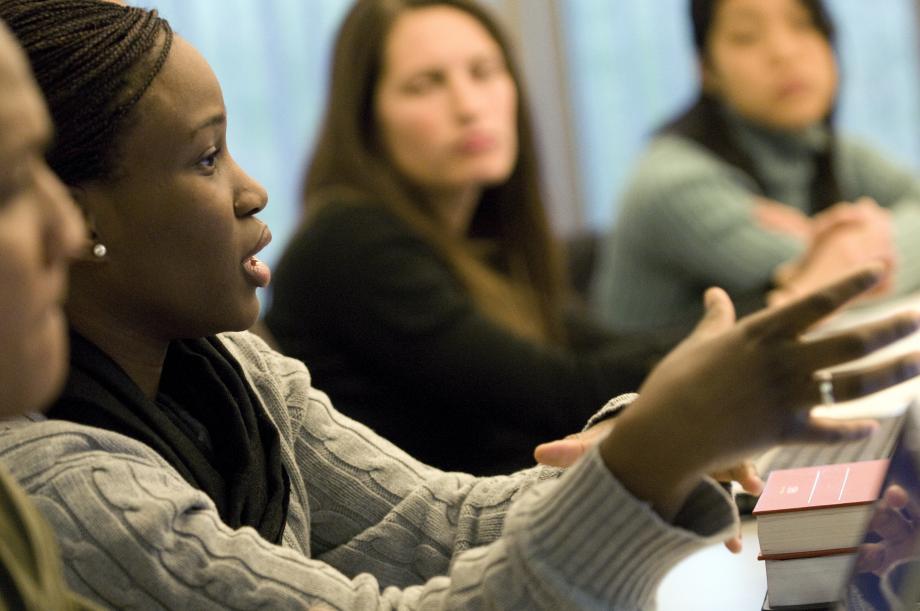Interdisciplinary Inquiry

UChicago's devotion to interdisciplinary inquiry is as old as the school itself. It grows out of our conviction that the law does not exist in a vacuum. We can understand the law and legal methods only if we understand both how the law affects the behavior of the society it governs and how the law reflects the values of that society. For this reason, students do not study law as an autonomous discipline. Faculty draw students' attention to insights from the social sciences, the humanities, and the natural sciences beginning on the first day of class. The faculty includes historians, economists, philosophers, and political scientists, and each year several Law School classes are cross-listed with other departments of the University. While Law and Economics was the first interdisciplinary field for which the Law School became famous, our curriculum demonstrates that students and faculty forge ahead in many other disciplines as well.
Law & Economics
The University of Chicago Law School is the birthplace of Law and Economics. Many people say it began in 1933—the year both Aaron Director and Henry Simons offered courses in economics at the Law School—but it can really be traced back to the beginning of the school itself. Today, the Law School’s Coase-Sandor Institute for Law and Economics offers fellowships and awards for students and leads the Law and Economics workshop.
Law & Philosophy
The Law School offers an extremely broad and deep program of interdisciplinary study in law and philosophy, with attention to both the major historical figures and contemporary problems. "Elements of the Law" is a required 1L course, and there are a wide range of electives available to law students with philosophical interests during their second and third years of study. Three full-time members of the law faculty have significant interests in law and philosophy: Brian Leiter, Martha Nussbaum, and David Strauss.
Legal History
The Legal History Program at the University of Chicago draws upon the faculty in both the Law School and the University’s History Department to offer a range of courses in the history of law. A highlight of the Legal History Program each year is the Maurice and Muriel Fulton Lecture, an annual lecture by a distinguished historian of law.
International & Comparative Law
The Law School has a broad commitment to the study and practice of International Law. The Law School offers an expansive and well-rounded curriculum with more than 170 elective courses, including more than 40 electives in international and comparative law, and has several faculty members whose teaching and scholarship interests include international and comparative law. The Law School is the home of the Chicago Journal of International Law, a student-edited forum for discussion and analysis of international law and policy issues. Students are able to participate in International Immersion Program, Cutler Fellows Program in International Law, and the JD International Human Rights Summer Internship Program.
Law & Business
The Law School offers students a number of ways to build skills that will prepare them for careers in business. They can participate in the Doctoroff Business Leadership Program, a certificate-granting program that includes a summer internship, mentorship, and a core curriculum of business courses that are taught at the Law School by Booth School of Business professors and are open to all Law School students. Law School students can also gain real-world transactional experience through the Kirkland & Ellis Corporate Lab; work with startups and venture capital funds through the Innovation Clinic; and provide legal services, education, advocacy, and outreach to lower-income entrepreneurs through the Institute for Justice Clinic on Entrepreneurship. Some students can also participate in a dual JD/MBA program with the Law School and Booth.
Dual Degrees
Law students have or are currently pursuing dual degrees in Business, Public Policy, Religious Studies, International Relations, Computer Science, Linguistics, and Economics.
Classes Across University Divisions
The Law School encourages law students to take classes across campus, and all law students can receive up to 12 credits toward the 105 credits required to graduate from the Law School by taking classes in other departments throughout the University.